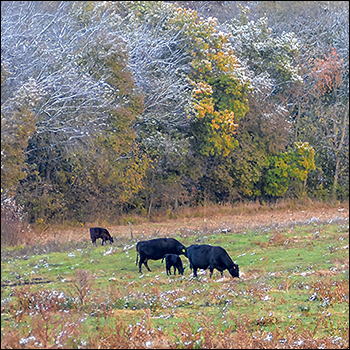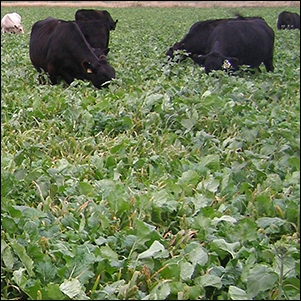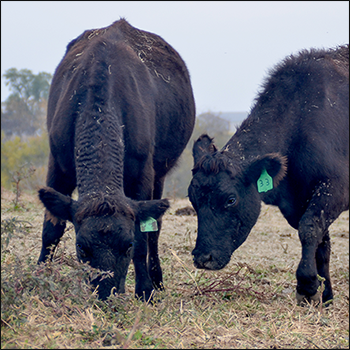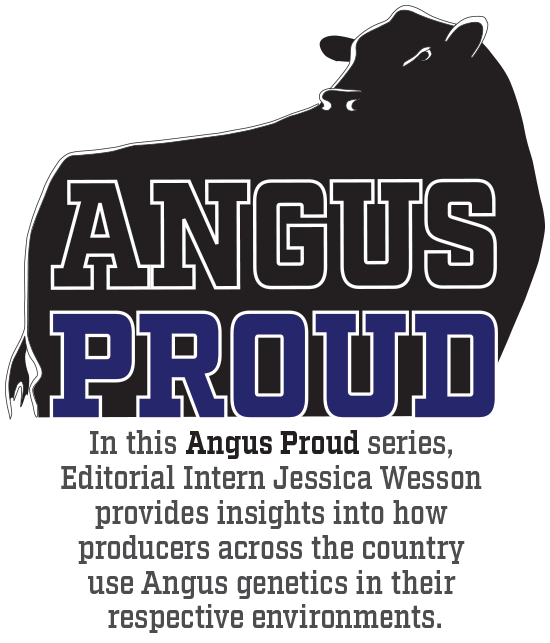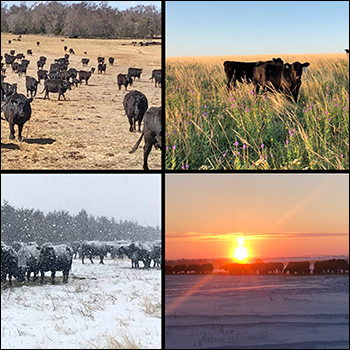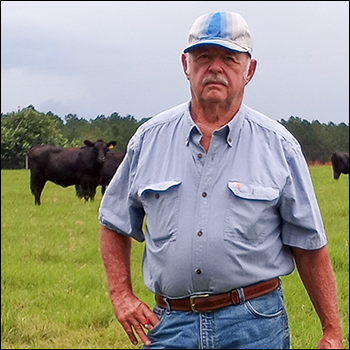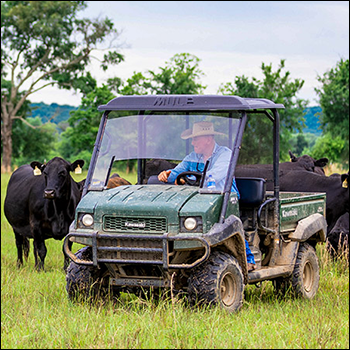News & Notes
Views on Cattle Contract Library Act of 2021.
On Oct. 19, Reps. Dusty Johnson (R-SD) and Henry Cuellar (D-TX) introduced the Cattle Contract Library Act of 2021 (H.R.5609) to the U.S. House of Representatives. The bill was referred to the House Ag Committee, which passed the bill directing USDA to create and maintain a library for cattle contracts within USDA’s Agricultural Marketing Service (AMS).
Intended to ensure cattlemen have greater insight into the contract terms being offered by packers, the bill would require USDA to issue weekly or monthly reports that include:
- The total number of fed cattle committed under contracts for delivery to packers within the six-month and 12-month periods following the date of the report. They would be available by region and contract type.
- The number of contracts with an open commitment along with any limitations on number of cattle to be delivered under such contracts.
- The total maximum number of fed cattle to be delivered within the six-month and 12-month periods by both region and contract type.
The bill must be approved by the full House and would also need Senate consideration before it could be signed into law.
The bill’s introduction and committee markup elicited different reactions from industry groups.
A cattle contract library could be “an important tool that will help producers negotiate more favorable terms for their cattle,” said National Farmers Union (NFU) President Rob Larew. “Instituting this new policy will be a helpful step in bringing greater fairness and competition to cattle markets.”
The National Cattlemen’s Beef Association (NCBA) welcomed the bill, noting in a news release that the cattle contract library, which it has been pushing for a year, is widely supported by industry groups and lawmakers on both sides of the aisle.
“After more than a year of upheaval, facing everything from extreme drought to supply-chain disruptions, many cattle producers have been backed against a wall. We need to act urgently to provide them with relief,” said NCBA President Jerry Bohn. “There is no single, silver-bullet solution to the wide variety of needs among our diverse membership, but lawmakers can start by focusing on viable solutions that have broad-base support across the industry. The cattle contract library is one such solution, and it will help our producers command more leverage in negotiations with the packers.”
Earlier this month, NCBA Vice President and South Dakota rancher Todd Wilkinson testified before the House Agriculture Committee and underscored the need for greater transparency in cattle markets. He advocated for the creation of the cattle contract library, as well as full reauthorization of Livestock Mandatory Reporting (LMR).
Ranchers-Cattlemen Action Legal Fund, United Stockgrowers of America (R-CALF USA) withheld endorsement of the Cattle Contract Library Act of 2021 after its board of directors determined the bill does not address key issues.
“The problem with our broken market is not that we don’t know the details of the contracts that confer market leverage to the packers; the problem is there are too many contracts and, because of that, our price discovery market is being destroyed,” said Iowa cattle feeder and R-CALF USA Director Eric Nelson.
Nelson said the 50/14 bill, S.949, introduced by Senators Chuck Grassley (R-IA) and Jon Tester (D-MT) addresses this problem by increasing the volume in the price discovery market and decreasing the volume of contracted cattle.
“I want to continue selling cattle in the price discovery market, but only if Congress preserves it will I have that chance,” Nelson said. “Putting a contract library ahead of taking action to preserve our price discovery market sends a signal that more contracts are good and more producers should try to access them. This is not what is needed.”
R-CALF USA CEO Bill Bullard expressed concern with new cattle procurement methods now in use that do not specifically fit within the categories established in the contract-library bill. He cited the recently disclosed cattle-feeding agreement between Tyson Fresh Meats and Easterday Ranches Inc.
“We’ve always considered Easterday as among the nation’s largest contract cattle feeders, but the cattle-feeding agreement between Tyson and Easterday appears to be a hybrid agreement that blurs the line between contracted cattle and packer-owned cattle, and the contract-library bill does not expressly include any packer-owned cattle.
“We have to presume there are more of these hybrid-type agreements out there between the largest packers and largest feedlots, and if they aren’t expressly captured in reports generated under a contract-library bill, then the information available to the industry will remain incomplete and skewed,” he said.
Bullard said his group is focusing its resources toward restoring competition by urging swift passage of the 50/14 bill and the recently introduced mandatory country-of-origin labeling (mCOOL) bill for beef, the American Beef Labeling Act of 2021 (S.2716).
“We’ll continue our assessment of the contract-library bill, but we first have to restore genuine competition to the cattle market that is not returning the cost of production to our cattle-producing member,” Bullard concluded.
“Members of the Meat Institute are still analyzing the bill and how it might affect their operations,” said Julie Anna Potts, president and CEO of the North American Meat Institute (Meat Institute).
The trade association represents meat and poultry packers and processors of all sizes.
“More time is needed to consider how the bill will affect livestock producers, feedlot operators, and packers and processors,” Potts said. “Due to the limited time allowed to consider the legislation, we ask the House to pause and include packers in the conversation, since the packers would bear the burden of complying with this new government mandate.”
Pledging to work with Congress to address any unintended consequences, Potts said, “There is already robust price discovery provided by beef packers on a daily basis. We urge members of Congress to slow down and to first do no harm.”
Offering background on transparency and price discovery currently available for cattle and beef markets, the Meat Institute noted that Congress established and the USDA administers the Livestock Mandatory Reporting Act (LMR) program to facilitate open, transparent price discovery and provide all market participants, both large and small, with comparable levels of market information for slaughter cattle and beef, and other species.
Under LMR, packers must report to the AMS daily the prices they pay to procure cattle and other information, including slaughter data for cattle harvested during a specified time period and with net prices, actual weights, dressing percentages, percent of beef grading Choice and price ranges. Then AMS publishes the anonymized data. AMS publishes 24 daily and 20 weekly cattle reports each week. Weekly reports start Monday afternoon and end the next Monday morning. These reports cover time periods, regions and activities; and the data include actual cattle prices.
Packers report all original sale beef transactions in both volume and price through the Daily Boxed Beef Report. This data is reported twice daily, at 11:00 a.m. and at 3:00 p.m. Central Time. The morning report covers market activity since 1:30 p.m. of the prior business day until 9:30 a.m. of the current business day. The afternoon report is cumulative, including all market activity in the morning plus all additional transactions between 9:30 a.m. and 1:30 p.m., and is on the USDA DataMart website. The boxed-beef report covers both individual beef item sales and beef cutout values and current volumes, both of which are derived from the individual beef item sales data.
Editor’s note: This article was compiled with information from news releases provided by the organizations mentioned.


